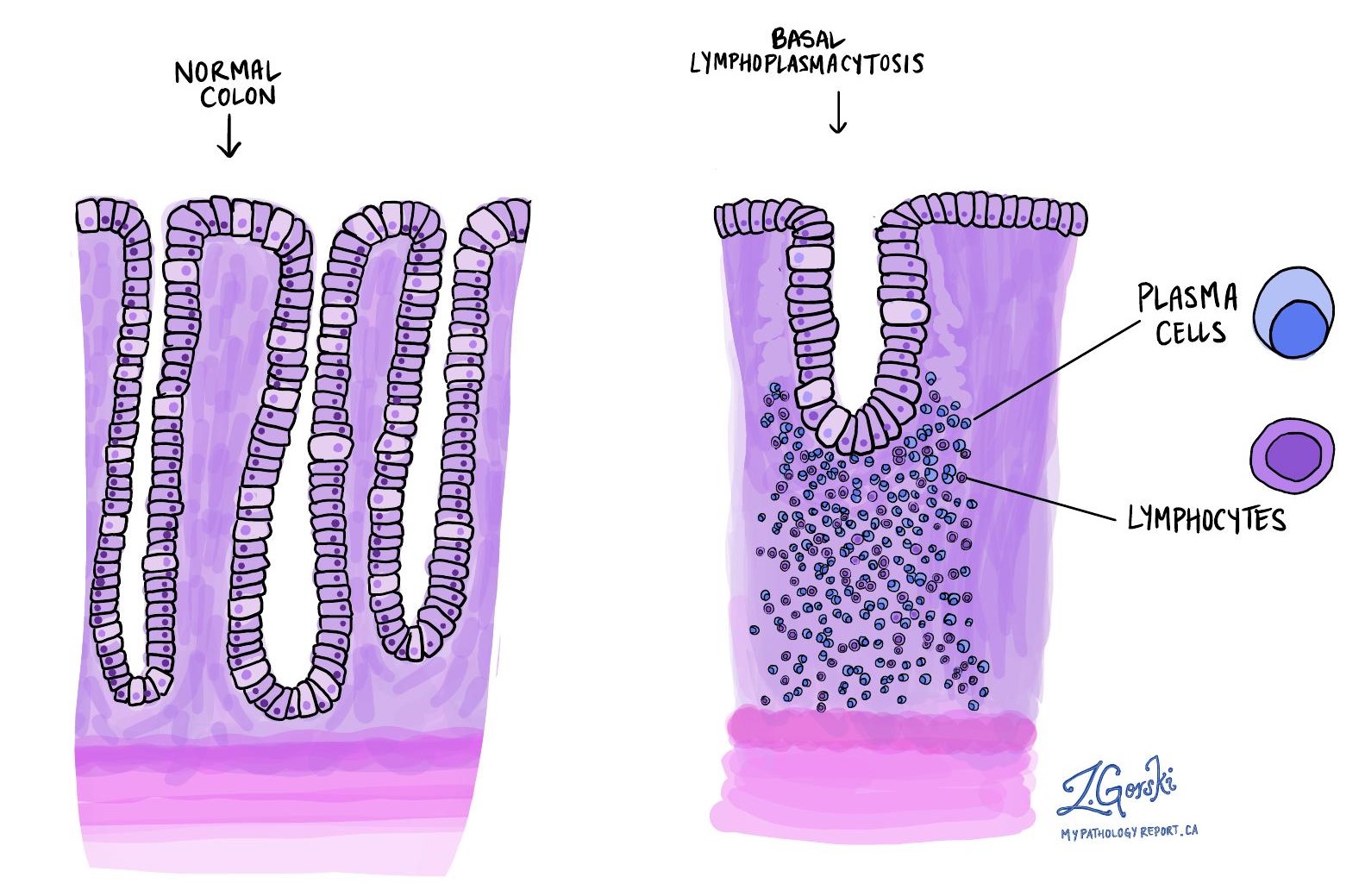MyPathologyReport
July 1, 2023

In pathology, the term basal lymphoplasmacytosis is used to describe large groups of immune cells called lymphocytes and plasma cells within the layer of tissue that covers the inside of the colon. Because large groups of lymphocytes and plasma cells are not normally seen in the colon, this change is used to support the diagnosis of chronic colitis. Chronic colitis is a condition where prolonged or chronic inflammation damages the colon and prevents it from working normally.
What causes basal lymphoplasmacytosis?
Basal lymphoplasmacytosis is caused by abnormal activation of the immune system. What triggers the immune system to become activated is not currently known. Other signs of prolonged inflammation in the colon are crypt distortion and Paneth cell metaplasia.
What are some conditions associated with basal lymphoplasmacytosis
This change is frequently seen in inflammatory bowel disease (IBD). Types of inflammatory bowel disease include Crohn’s disease and ulcerative colitis.
About this article
Doctors wrote this article to help you read and understand your pathology report. Contact us with any questions about this article or your pathology report. Read this article for a more general introduction to the parts of a typical pathology report.



